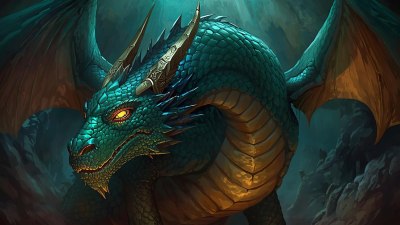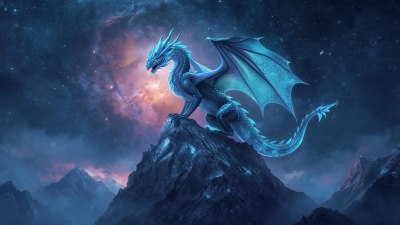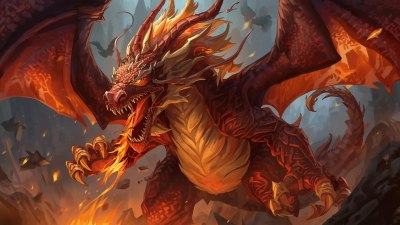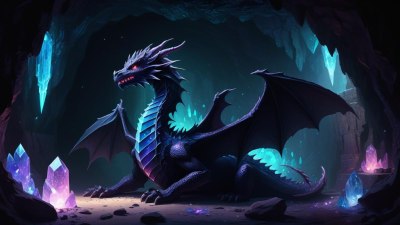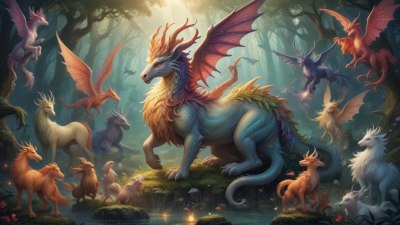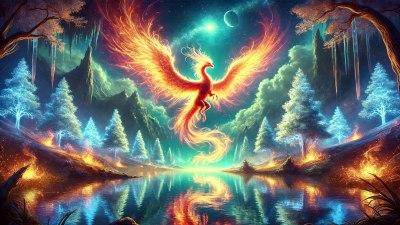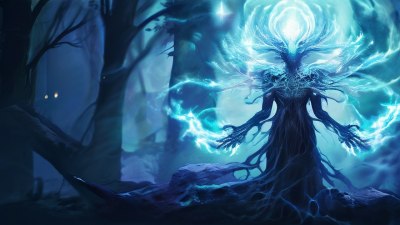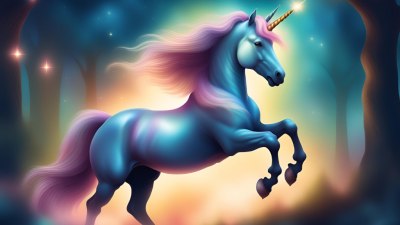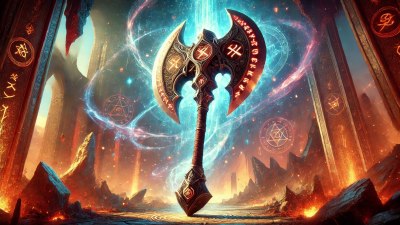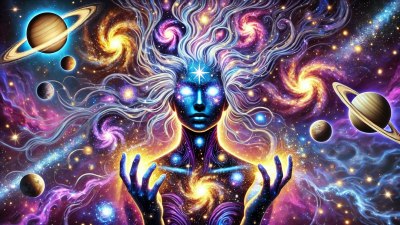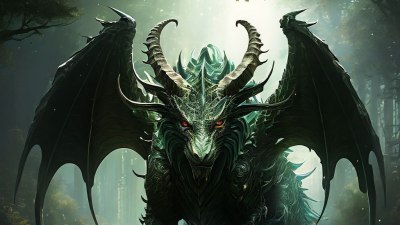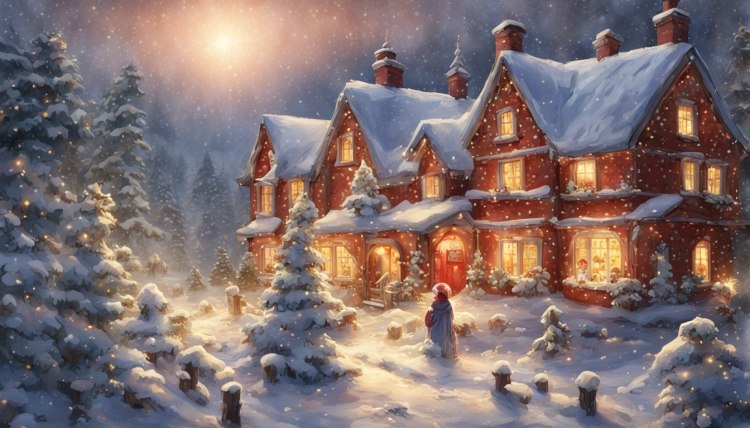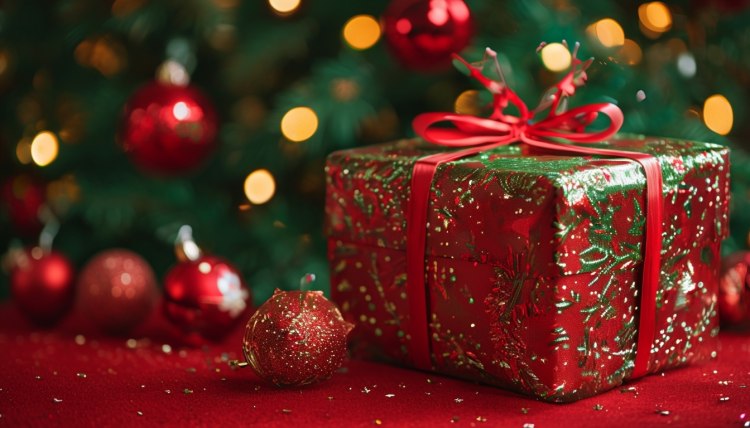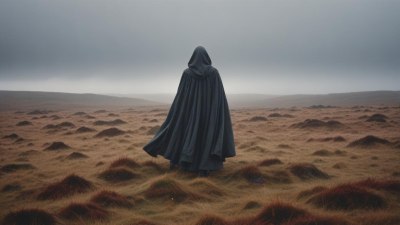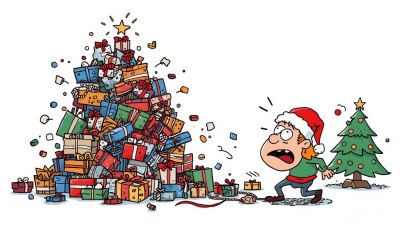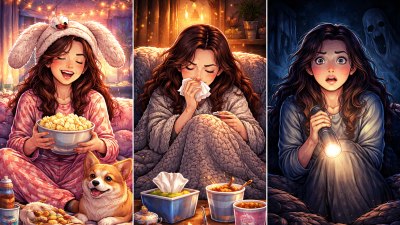Mythical Creatures Revealed: Dragons, Unicorns, and More!
Dive into the enchanting world of mythical creatures! Discover the stories and symbolism of dragons, unicorns, mermaids, and more, and uncover the magic behind these legendary beings
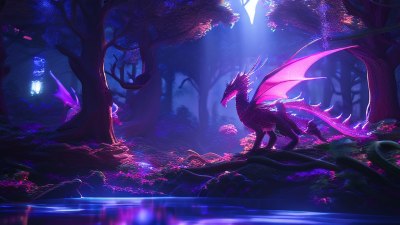
This image was created with the assistance of Playground AI
For centuries, mythical creatures have captivated human imagination, appearing in folklore, literature, and art across cultures.
From the majestic dragon to the ethereal unicorn, these legendary beings are more than just figments of fantasy—they’re symbols of human dreams, fears, and aspirations.
But what’s the story behind these mystical creatures? Let’s journey through the enchanted realms and uncover the fascinating lore of dragons, unicorns, and other legendary beasts.
1. Dragons: Guardians of Power and Wisdom 🐉🔥
Few mythical creatures are as iconic as the dragon, revered and feared in cultures worldwide. Whether depicted as a treasure-hoarding beast or a wise guardian, dragons symbolize power, strength, and mystery.
- Western Dragons: Often portrayed as fire-breathing monsters guarding treasure, Western dragons symbolize challenges and the hero’s journey. They appear in tales like Beowulf and Arthurian legends, representing obstacles to overcome.
- Eastern Dragons: In contrast, Eastern dragons (China, Japan, Korea) are benevolent creatures associated with wisdom, rain, and prosperity. Chinese dragons are celebrated in festivals as symbols of good fortune.
Fun Fact:
In Chinese culture, the Lung dragon is one of the Four Benevolent Creatures, associated with the Emperor and cosmic balance.
2. Unicorns: Symbols of Purity and Magic 🦄✨
The unicorn, with its shimmering horn and mystical aura, is a creature of purity, innocence, and magic. Legends describe unicorns as elusive beings that can only be tamed by the pure of heart.
- In Ancient Mythology: Unicorn-like creatures first appeared in Mesopotamian and Indian art. The Greeks, including writers like Herodotus, described them as real animals akin to wild asses.
- Medieval Lore: During the Middle Ages, unicorns became symbols of Christ in Christian art, with their horns representing divine protection and healing.
Fun Fact:
The unicorn’s horn, or alicorn, was believed to have the power to purify water and cure poison, making it one of the most sought-after treasures in medieval times.
3. Phoenix: The Eternal Flame 🔥🦅
The phoenix is a bird of rebirth and immortality, renowned for its ability to rise from its own ashes. Found in myths from Ancient Egypt, Greece, and China, the phoenix represents hope, renewal, and the cycle of life and death.
- Greek Mythology: The phoenix lived for hundreds of years before building its own funeral pyre, only to be reborn from the flames.
- In Eastern Lore: The Chinese Fenghuang is a phoenix-like creature symbolizing harmony, often paired with the dragon as a representation of yin and yang.
Fun Fact:
The phrase “rise like a phoenix” is a popular metaphor for overcoming adversity and emerging stronger than ever.
4. Mermaids: The Sirens of the Sea 🧜♀️🌊
Half-human, half-fish, mermaids have enchanted sailors for centuries. These aquatic beings symbolize the mysteries of the sea, often embodying both beauty and danger.
- In European Folklore: Mermaids were seen as omens of doom, luring sailors to their deaths with their songs. In contrast, mermen were rarely depicted and often portrayed as less attractive.
- In Global Mythology: Variations of mermaids appear in African, Asian, and Indigenous American myths, such as Mami Wata in African spiritual traditions, who represents wealth and healing.
Fun Fact:
The Disney film The Little Mermaid is loosely based on Hans Christian Andersen’s dark fairy tale, where the mermaid sacrifices everything for love but faces a tragic end.
5. Griffins: Guardians of Treasure 🦅🦁
With the body of a lion and the head and wings of an eagle, the griffin is a powerful symbol of strength, courage, and protection. In mythology, griffins are often depicted guarding treasures and sacred places.
- Origins: Griffins appear in ancient Persian, Greek, and Egyptian art. They were believed to guard gold mines and were sometimes considered protectors of the divine.
- In Medieval Lore: Griffins symbolized divine power and vigilance, often appearing in coats of arms.
Fun Fact:
The griffin’s sharp eyesight and regal demeanor made it a symbol of military strength in medieval Europe.
6. Chimeras: Creatures of Chaos 🐐🦁🐍
The chimera is a fearsome hybrid creature with the body of a lion, the head of a goat, and a serpent for a tail. Originating in Greek mythology, the chimera represents chaos and destruction.
- Mythical Role: In Greek legend, the chimera was slain by the hero Bellerophon, who rode the winged horse Pegasus.
- Symbolism: Chimeras often symbolize fearsome challenges or unnatural combinations.
Fun Fact:
Today, the word “chimera” is used to describe imaginative or improbable concepts, a nod to the creature’s fantastical nature.
7. Fairies: The Enchanted Folk 🧚♀️✨
Fairies, or the Fae, are magical beings deeply rooted in folklore, particularly in Celtic traditions. Often depicted as mischievous or helpful spirits, fairies are connected to nature, magic, and the unseen world.
- In Celtic Lore: The Fae were believed to inhabit the Otherworld, a mystical realm parallel to ours. Humans who entered their world risked being enchanted—or never returning.
- Modern Depictions: From Shakespeare’s A Midsummer Night’s Dream to Disney’s Tinker Bell, fairies are often portrayed as whimsical and playful.
Fun Fact:
Leaving small offerings like milk or bread was believed to appease fairies and prevent them from causing mischief.
8. Centaurs: Half-Human, Half-Horse Mystics 🐎👤
Centaurs, creatures with the upper body of a human and the lower body of a horse, embody the duality of human nature—wildness and intellect. They appear frequently in Greek mythology, often as wise teachers or untamed warriors.
- Chiron the Centaur: Unlike his wild counterparts, Chiron was a healer and teacher to Greek heroes like Achilles and Hercules.
- Symbolism: Centaurs symbolize the tension between our primal instincts and higher reasoning.
Fun Fact:
Centaurs are sometimes associated with Sagittarius, the zodiac sign known for its adventurous and philosophical nature.
9. Werewolves: Beasts of the Full Moon 🌕🐺
The werewolf is a human cursed (or blessed) to transform into a wolf under the full moon. Rooted in European folklore, werewolves represent the struggle between humanity and our animalistic instincts.
- In Myth and Legend: Early stories depicted werewolves as cursed individuals, while others linked them to witchcraft or divine punishment.
- Modern Pop Culture: Werewolves have become iconic in books and movies, from The Wolf Man to Twilight.
Fun Fact:
The term “lycanthropy” refers both to the mythical transformation and a rare psychological condition where individuals believe they can turn into wolves.
Final Thoughts: The Magic of Mythical Creatures 🐉🦄✨
Mythical creatures are more than just stories—they’re reflections of our fears, hopes, and imaginations. Whether guarding treasures, guiding heroes, or embodying nature’s mysteries, these legendary beings remind us of the magic that lies just beyond the ordinary.
Next time you spot a dragon in a book or a unicorn on a tapestry, remember the deep history and symbolism behind these creatures. Who knows? Maybe the magic isn’t so mythical after all.
